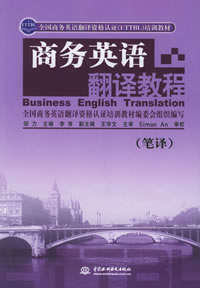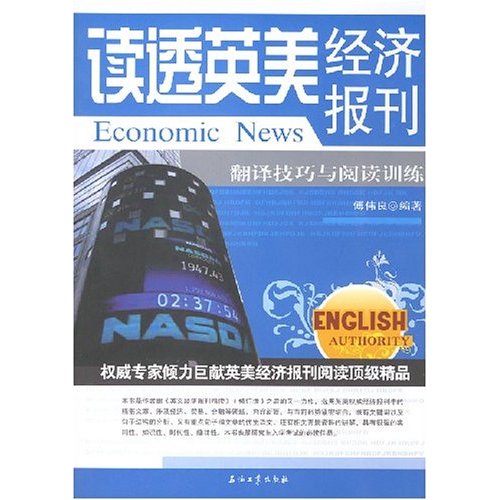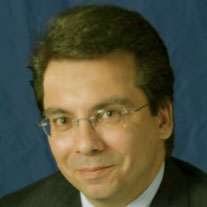Getting Started as a Translator:Gleanings from Honyaku (第二部分)
作者:古龙 2009-07-04




语际翻译公司 转载请注明https://www.scientrans.com
∗本栏目部分文章内容来自互联网,部分已经过本站编辑和整理,如有版权事宜请联系Email/MSN jesczhao@hotmail.com
Karen Sandness
________________________________________
Tom Gally wrote that he had "zero years of college Japanese and two-and-a-half years in Japan" when he started translating.
I'm curious as to how people with little or no university education and only one or two years 'in country' acquire the skills to become profession translators. I'd also like to know what kinds of things you are translating. I am in no way trying to sound snotty or sarcastic, nor am I implying any lack of qualifications. I'm honestly just curious.
Ken Schwartz
________________________________________
If twelve years of language teaching taught me anything, it was that neither classroom time nor time in Japan is an accurate predictor of how well a student will learn Japanese. The coverage and quality of Japanese curricula vary considerably from school to school. Some programs seem to spend most of their time on origami, sushi-making, and learning children's songs, while others are the linguistic equivalent of boot camp.
If you're in Japan, you can spend your time lapping up the language and culture and seeking novelties associated with them, or you can spend your time moving in comfortable circles, content with what you need to "just get by." ( I've met some long-term expatriates who would probably starve to death if they ever had to leave the gaijin ghetto.) Natural talent plays a huge role, as do motivation and just plain hard work. I've seen mediocre students wake up because of falling in love with a Japanese person or because of acquiring new friends who placed a priority on studying instead of drifting.
Most people with two years of college Japanese and one year in Japan would not be ready to translate professionally, but I wouldn't rule out the possibility. In fact, I once had a student with two years in Japan with no previous language instruction, and she was phenomenal.
I sent a private e-mail to the original inquirer suggesting that he tell employers exactly what he can do with Japanese--read shuukanshi with little use of a dictionary, understand NHK newscasts, etc.--rather than telling them about his academic record, the hint being that if he can't do things like this, maybe he's not ready.
In the end, it's not how many swimming lessons you've had, but whether you can meet the times required for competition.
Karen Sandness
________________________________________
Some people are disgustingly good at acquiring language without the benefit of formal training. I once worked with a Japanese man who was able to spot subtle infelicities in my English without ever having lived outside of Japan. I went through the academic mill, and I'd never have made it without that background. But there's no denying that some people (not many) have the combination of native linguistic ability and motivation to "pick it up" themselves. More power to them!
Laurie Berman
________________________________________
I've studied seven foreign languages extensively. Six of these were as part of my formal education, and one (Japanese) I studied entirely without the "benefit" of any institution of learning. Yet Japanese is the only one I am fluent in. It is also the one on which both my profession and everyday social and family life are now based.
As for learning the fields of translation, this is an on-going process. When I graduated from university, the topics I now translate in (computing and telecommunications) barely resembled what they are today. LSIs, fiber optics, and microprocessors didn't even exist. I owe much more to a lifelong love of electronics and gadgetry than anything I learned in school.
Sorry if I appear to be scornful of education; that's not my purpose. University taught me how to think and do research, and put me alongside some very stimulating people from all over the world. But it sure didn't teach me how to do my job.
- 评论
- seme:文章内容文章内容文章内容文章内容文章内容文章内容文章内容文章内容文章内容 章内容文章内容文章内容文章内容文章内容
- seme:文章内容文章内容文章内容文章内容文章内容文章内容文章内容文章内容文章内容 章内容文章内容文章内容文章内容文章内容

- 谈翻译观念的嬗变与翻译技能的训练
2009-6-15 15:33:10 - 《高等学校英语专业英语教学大纲》中规定,大学生通过四年的在校学习,“能运用翻译的理论和技巧,将英美报刊上的文章以及文学原著译成汉语,或将我国报刊、杂志上的文章和一般文学作品译成英语……。译文要求忠实...
- 翻译与网络营销
2009-6-11 0:02:31 - Translation and Your International E-Commerce Strategy Most businesses realize that they ...
期刊征稿
- 第四届IEEE生物信息与生…
2009-6-30 19:42:01 - 基本信息 主办单位: 四川大学,IEEE生物医学工程协会(EMBS) 承办单位 开始日期 2010/06/18 结束日期 截稿日期 2009/1...
- 第九届全国光电技术学术…
2009-6-30 19:35:58 - 基本信息主办单位: 中国宇航学会光电技术专业委员会承办单位 开始日期 2009/11/01结束日期 截稿日期 2009...
















